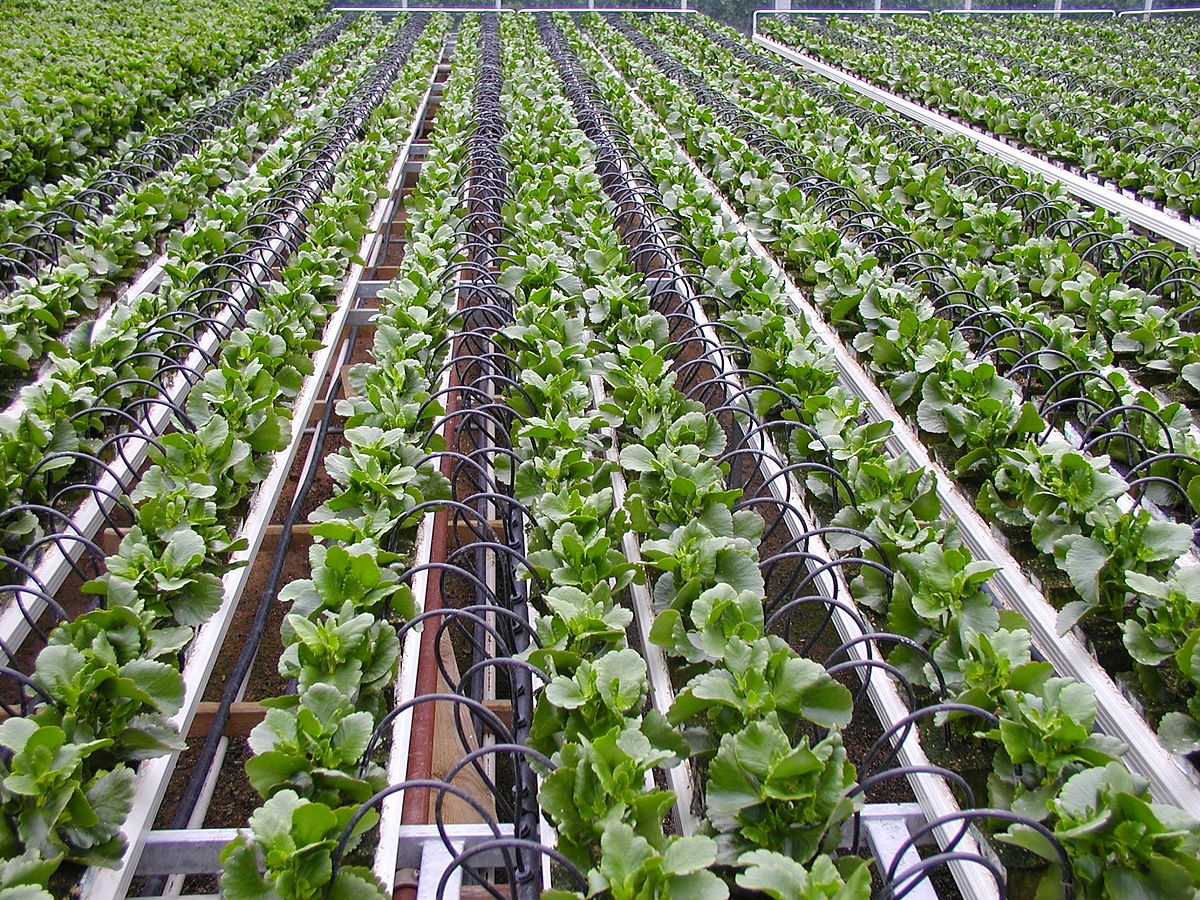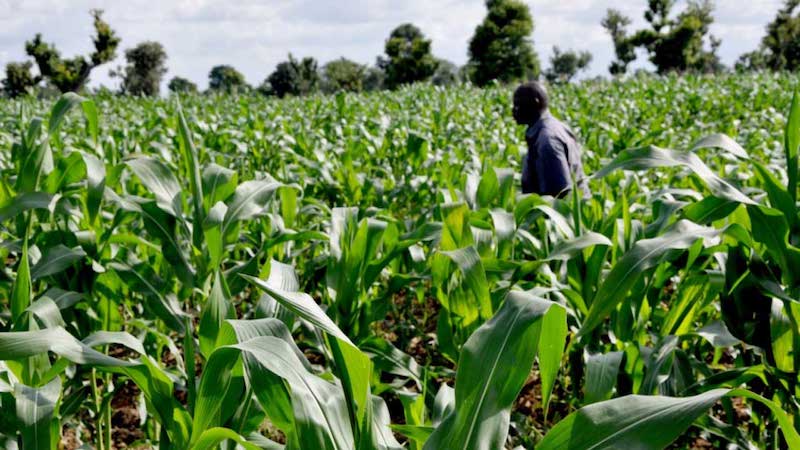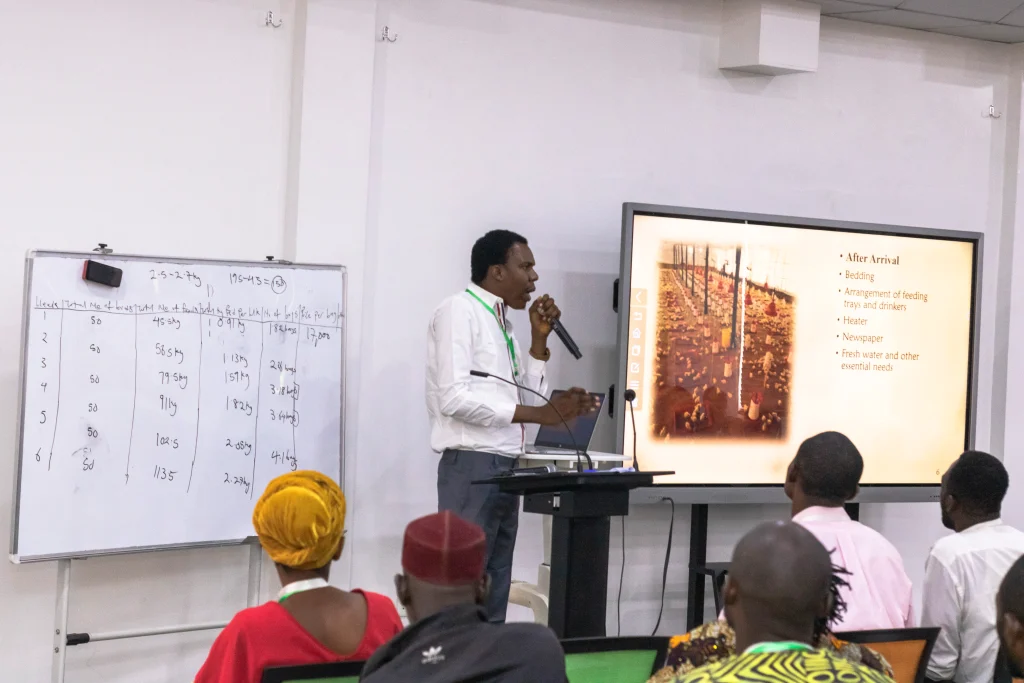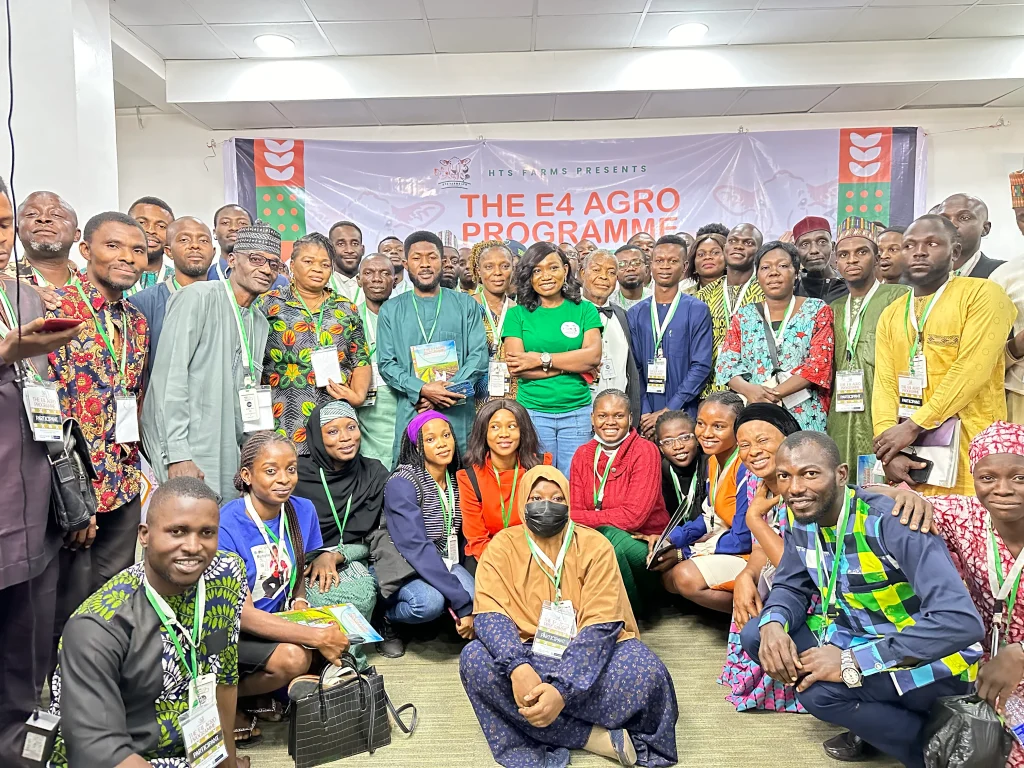
The Evolution of Farming in Nigeria
Table of Contents
- Introduction
- The Golden Age of Agriculture
- Nigeria’s dominance in cocoa, groundnuts, and palm oil exports.
- The role of smallholder farmers in building the agricultural foundation.
- Challenges of Traditional Farming
- Decline during the oil boom.
- Impact of outdated techniques and climate change.
- The Rise of Agrotech in Nigeria
- Shift toward digital solutions in farming.
- Introduction of platforms like HTSFarms bridging farmers and markets.
- HTSF Global: Leading the Evolution
- Integrating technology to support farmers.
- Contributions to SDG 2: Zero Hunger and sustainable farming.
- Cocoa to Code: The Digital Farming Revolution
- Case studies of farmers leveraging technology.
- Impact of digital tools on productivity and market access.
- Future Prospects: A New Era for Agriculture in Nigeria
- HTSF Global’s vision for modern farming.
- Opportunities in data-driven farming, climate resilience, and e-commerce.
- Conclusion
- References
Introduction
Agriculture in Nigeria holds a story of cultural depth, economic foundation, and incredible transformation. Before oil redefined the nation’s economic priorities, farming was Nigeria’s beating heart, producing cocoa, palm oil, and groundnuts that dominated global markets. This agricultural heritage was nurtured by smallholder farmers who relied on resourcefulness and determination to meet global demands.
As the country embraced modernization and oil wealth, the agricultural sector faced neglect, leading to declines in productivity and relevance. However, Nigeria’s farming narrative is experiencing a resurgence, with innovations bridging the past and future. HTSF Global stands as a beacon of this evolution, marrying traditional farming knowledge with advanced agricultural technologies to ensure food security, economic empowerment, and global competitiveness.

The Golden Age of Agriculture
Between the 1950s and 1970s, Nigeria witnessed its agricultural golden age, marked by rich exports and thriving rural economies. Cocoa plantations in the west ranked Nigeria as the second-largest global exporter, while the north’s iconic groundnut pyramids symbolized an era of surplus and ingenuity. In the east and south, palm oil dominated international trade, and yam cultivation flourished, cementing Nigeria’s role as a global agricultural leader.
This success was underpinned by smallholder farmers, who made up the majority of the agricultural workforce. Despite limited access to modern equipment and weather-dependent systems, their efforts kept the economy afloat, accounting for over 70% of national revenue in the 1960s. Rural areas prospered with the influx of infrastructure projects, employment, and community development tied to farming.

However, these achievements were fragile. Nigeria’s agricultural system was vulnerable to post-harvest losses, poor mechanization, and a lack of consistent government policies. The oil boom in the 1970s marked a turning point, redirecting resources away from farming and creating a dependency on imported food. The golden age faded, leaving the sector in need of revitalization.
Modern Challenges and the Path to Transformation
The decline of Nigeria’s agricultural sector in the 1970s coincided with the rapid expansion of the oil industry. With newfound oil wealth, the focus on agricultural investment waned, leading to reduced output and an increasing reliance on food imports. Nigeria, once self-sufficient in food production, became a net importer of basic staples like rice and wheat. The loss of agricultural export dominance further weakened rural economies, as farmers faced poor access to markets, storage facilities, and financial support.
Climate change exacerbated these challenges. Erratic rainfall, desertification in the north, and flooding in southern regions disrupted planting cycles and reduced crop yields. Additionally, smallholder farmers, who form the backbone of Nigerian agriculture, lacked the tools and knowledge to adapt to these environmental changes. The agricultural workforce aged, as younger generations migrated to urban centers in search of non-agricultural employment.

Despite these challenges, a quiet revolution began to take shape. Government policies, private sector interventions, and technological innovations converged to reimagine the role of agriculture in Nigeria. Programs to incentivize local production, establish storage infrastructure, and improve rural financing began to gain traction. This created fertile ground for companies like HTSF Global to step in with transformative solutions.
HTSF Global: Bridging Tradition and Technology
HTSF Global is at the forefront of Nigeria’s agricultural revival, combining a deep respect for traditional farming practices with cutting-edge technological innovations. Recognizing the gaps in infrastructure and market access, the company has created platforms that address the core challenges faced by farmers and agricultural stakeholders.
Empowering Farmers Through E-commerce
HTSFarms provides farmers across Nigeria with access to high-quality farm inputs, ranging from seeds to fertilizers and agrochemicals. By leveraging its e-commerce platform, the company ensures that farmers, regardless of location, can obtain the resources needed to improve productivity. This approach has helped smallholder farmers overcome the logistical challenges of sourcing affordable and reliable inputs.
Access to Modern Farming Equipment
HTSF Global provides farmers with access to advanced agricultural tools and equipment, enabling them to enhance productivity and optimize farm operations. By offering modern machinery such as precision farming tools, power tillers, and processing machines, the company ensures farmers have the right resources to improve efficiency and meet the demands of contemporary agriculture.

Training and Consultation
In addition to providing equipment, HTSF Global offers comprehensive training and consultation services in sustainable farming practices. These resources empower farmers with the knowledge to adopt climate-smart techniques, manage their farms more effectively, and boost productivity while reducing environmental impacts.
Supporting Innovation and Youth Engagement
HTSF Global’s programs aim to attract younger generations to agriculture by making it more appealing through technology and entrepreneurship opportunities. The company has cultivated partnerships with agritech firms and government agencies to support innovation and scalability in the sector.
The Future of Agriculture in Nigeria: Digital Transformation and Economic Impact
As Nigeria transitions into the digital age, agriculture is undergoing a significant evolution, driven by innovative approaches from companies like HTSF Global. The integration of technology with traditional farming practices has catalyzed economic development and revitalized rural communities.
HTSF Global’s Role in Shaping the Future of Agriculture
- HTSF E4Agro Training Program
The E4Agro Program is providing farmers/individuals with practical training in sustainable farming processes, This initiative empowers participants with the knowledge and skills needed to excel in the agricultural field. HTSF Global’s E4Agro Program is empowering farmers through both in-person and virtual training, equipping them with practical skills like poultry farming, Vegetable farming etc. This initiative enables participants to gain valuable knowledge, helping them launch their businesses confidently and make meaningful contributions to the agricultural value chain. The program supports farmers by providing them with knowledge needed to succeed in the dynamic farming sector.

2. Digital Literacy for Farmers
Through its Digital Farmer Initiative, HTSF Global is enabling farmers to access e-commerce platforms, learn new farming techniques, and connect with broader markets. This initiative is bridging the urban-rural technology gap, fostering inclusivity in agricultural innovation.
3. Boosting National Food Security
HTSF Global’s efforts align with Nigeria’s quest for self-sufficiency. By improving supply chains and promoting efficient farm practices, we contribute to enhanced food security and a reduction in import dependency.
Economic Revitalization Through Agriculture
Employment Opportunities
HTSF Global is transforming Nigeria’s economic landscape by generating sustainable employment opportunities across agricultural value chains. By empowering farmers, rural and urban communities, we’re creating jobs that extend beyond farming—spanning logistics, ecommerce, transportation, and packaging sectors. Our integrated approach supports direct employment while simultaneously fostering economic growth and opportunity in secondary industries.
Strengthening Agricultural Value Chains
HTSF Global bridges the gap between farmers and markets by providing access to quality inputs through our ecommerce platform, HTSFarms. From quality seeds to fertilizers and tools, we ensure farmers have what they need to boost yields, enhancing the efficiency and profitability of the agricultural value chain.

Empowering Through Training and Capacity Building
HTSF Global organizes specialized training programs, such as its broiler and vegetable production courses, to equip farmers with advanced knowledge and skills. By fostering entrepreneurship, these programs enable individuals to create their own economic opportunities.
Boosting Secondary Industries
HTSF Global is strategically enhancing secondary industries through targeted agricultural partnerships. By collaborating with various Agro companies, we’re providing critical agrochemical supplies that boost livestock and crop productivity. These partnerships create a ripple effect across logistics and packaging sectors, increasing demand for cold storage, transportation, and specialized packaging solutions. As farmers gain improved market access and yields, agro-processing industries experience significant growth, transforming agricultural value chains and stimulating economic development across interconnected sectors.
Conclusion
The journey from cocoa to code in Nigeria’s agricultural evolution underscores a dynamic and transformative sector. HTSF Global exemplifies how the integration of technology, sustainability, and market access can redefine farming in Nigeria. By empowering farmers with tools for efficiency and sustainability, HTSF Global is tackling food insecurity and strengthening Nigeria’s position in the global agricultural economy.

Looking ahead, this fusion of innovation and tradition presents opportunities to combat climate change, improve rural livelihoods, and ensure long-term food security. HTSF Global’s work demonstrates that sustainable farming is not just about yields; it’s about fostering resilient communities, creating equitable economic opportunities, and safeguarding the environment for future generations.
References:
- Food and Agriculture Organization (FAO). “The State of Food and Agriculture: Digitalization for Resilient Food Systems.” Available at
- World Bank. “Transforming Agriculture in Africa Through Digital Technologies.” Accessed December 2024.
- African Development Bank (AfDB). “Leveraging Digital Technology for Agriculture in Africa.” Accessed December 2024.
International Fund for Agricultural Development (IFAD). “Digital Agriculture for Smallholder Farmers.” Accessed December 2024.
